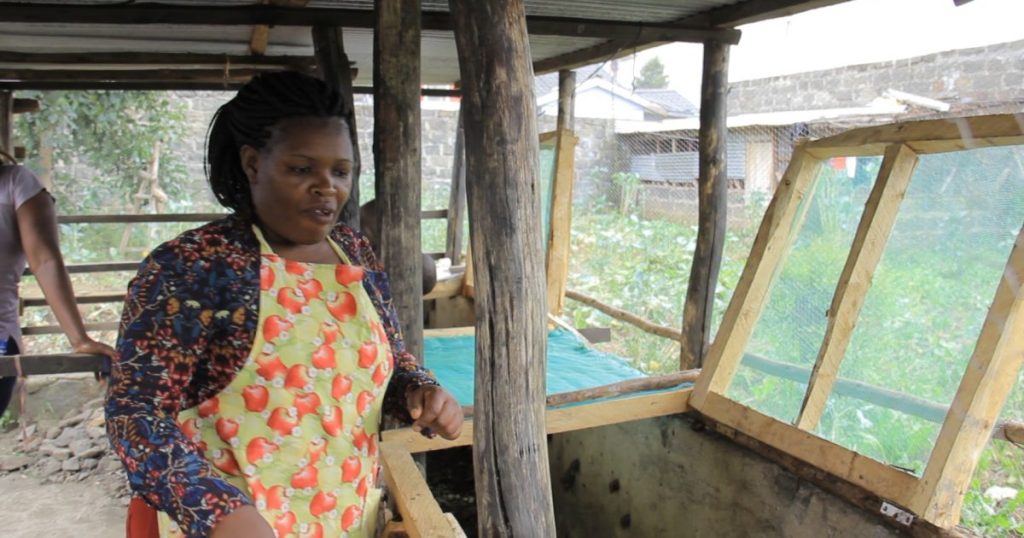About 15 km from Nakuru town, there’s a whirlwind of activity at Wangui Waweru’s farm, where she rears a delicacy that many Kenyans find unappealing, yet others around the world embrace. Snail farming is a business that has transformed her life.
Ms. Waweru runs her snail farming operation just a kilometer from the Lanet Airstrip. She’s hopeful that the planned upgrade to the airfield will bring more air traffic, opening up global markets for her produce.
A 10-meter by 10-meter greenhouse houses her snails. Within it, Waweru has partitioned the space into four rooms, each containing several plastic basins covered with fine wire mesh to protect the creatures from predators.
From Struggling Farmer to Snail Entrepreneur
Waweru’s journey into snail farming started 13 years ago during a trip to Kisumu, where she was selling her farm produce.
Speaking to the Kenya News Agency, Waweru notes that marketing her produce was one of the hardest challenges she faced. “I spent many sleepless nights thinking about cost and where to sell, as most farmers harvest at the same time, which fuels the marketing challenge,” she say.
It was on this trip that she visited a snail farmer who introduced her to the concept of snail farming.
Inspired, Waweru returned to Nakuru and decided to explore this business idea further. To equip herself with the necessary knowledge, she enrolled in a course at the Kenya Wildlife Service (KWS) training institute.
Investing in Snail Farming
Waweru took a bold step and invested Sh30,000 from her savings to set up her snail farm. This included purchasing greenhouse polythene, wire mesh, and 100 plastic basins. She also obtained a permit from KWS for Sh1,500 to begin her new venture.
Her primary customers are expatriates from Europe, Asia, and West Africa, who have developed a taste for snails, unlike most local consumers. “Snail meat is a healthy option—high in protein and very low in cholesterol,” she shares.
The Giant African Land Snail
Waweru primarily raises the Giant African land snail (Achatina fulica), which thrives in hot, humid environments like those around Lanet.
The snails are easy and inexpensive to care for, making them a promising business for anyone targeting the right market. “When managed well, the Giant African snails can live up to 10 years,” Waweru explains.
She currently keeps 4,500 snails, selling them at between Sh2,000 to Sh3,000 per kilo. On average, she sells 30 kilograms of snails per month.
Her primary market consists of Ghanaians, Cameroonians, Nigerians, Senegalese, Sierra Leoneans, Togolese, South Americans, and Asians who reside in Kenya.
Health Benefits of Snail Meat
Snails are rich in nutrients, and they contain 15% protein, 2.4% fat, and 80% water, in addition to being packed with fatty acids, calcium, iron, selenium, magnesium, and vitamins E, A, K, and B12.
“Snail meat is very safe because it’s sterilized by the moist soil they stay buried in during the day,” Waweru explains. It is also easy to prepare; simply boil for five minutes to remove mucus, then fry with tomatoes and onions.
“Snails are plentiful in counties where people are starving or malnourished,” Waweru points out. They offer an affordable and nutritious alternative, especially when organic vegetables like cabbages and watermelon are available to feed them.
Breeding Snails
Snails, being hermaphrodites, possess both male and female reproductive organs. They can produce between 300 to 500 eggs every three months, which hatch in 11 to 15 days. This allows farmers like Waweru to rapidly expand their snail populations.
However, after six months of growth, the snails’ size levels off, and they stop growing significantly, making them suitable for harvesting.
Challenges in Snail Farming
Despite their resilience, snails face threats from predators such as lizards, caterpillars, rats, beetles, termites, and spiders.
Flies are another risk, as their larvae feed on snails. Keeping these predators at bay is essential for the success of a snail farm.
In addition to being a food source, snails are also valued in the skincare industry. The slime they produce, known as mucin after processing, is used in high-end skin care products.
Snail mucin contains antioxidants that can help reduce signs of aging, such as wrinkles and sagging skin. It also aids in skin regeneration, boosts collagen production, and promotes healing.


